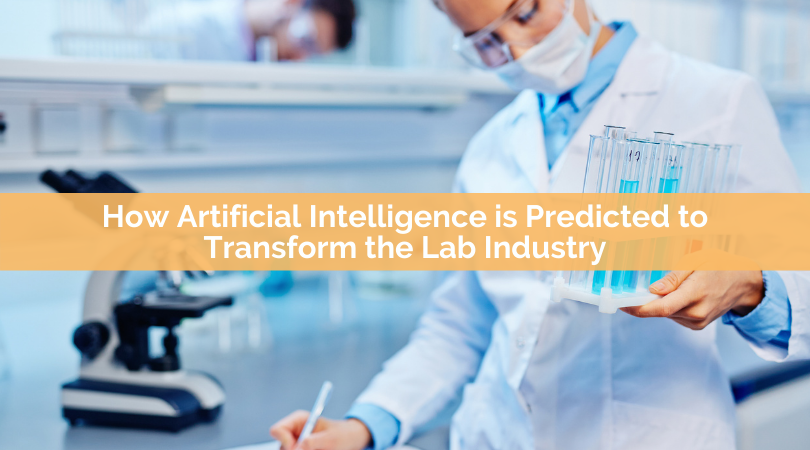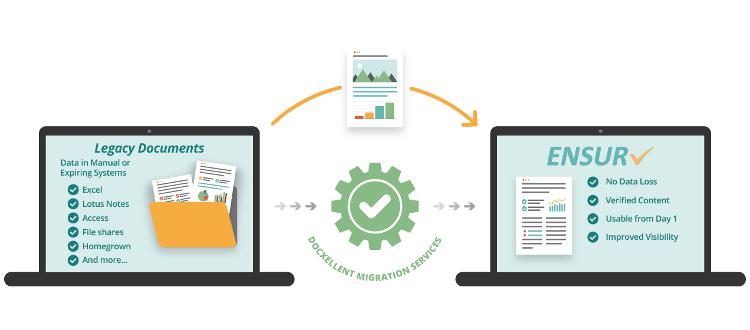
Technology has always been a pivotal part of laboratory processes. So, in the current age of fast-paced advancement, the logical next step for labs is to begin utilizing artificial intelligence (AI). In this article, we’ll discuss three major ways AI technology is predicted to transform the lab industry in the coming years; increasing lab efficiency, supporting diagnoses and decision making, and minimizing costs and human error.
Streamlining Lab Operations
One of the many benefits to AI technology is that it’s always working. If your company runs into an after-hours system failure, AI is there to detect it. Even further, many new AI technologies have the capability to predict a system failure weeks before one occurs. Using machine learning, AI can schedule efficient and convenient repairs or installations for all your machinery and technology. It can also be used to monitor predictive maintenance data, inventory depletion rates, and supply chain information to automatically schedule replacement parts and substance deliveries. Instead of your employees carrying the burden of machine maintenance and delivery upkeep, AI tech handles it, increasing your overall efficiency.
In terms of day-to-day lab activities, this technology can also work to reduce manual tube handling and sorting, giving your employees time to focus on data analysis. Through AI-enabled camera systems and machine learning, each tube is identified and sorted into its unique container type. From there, the cameras can detect tube parameters, and the sample-handling system automatically adjusts to meet the individual needs of each tube. Machine learning modernizations like this are predicted to transform many manual, human-based tasks, and hold the potential to greatly increase the efficiency of laboratory processes.
Diagnosis and Decision Support
Making clinical and diagnoses decisions can be time-consuming and difficult, especially in the case of more rare diseases. To help laboratories make these types of decisions more quickly and accurately, AI technology has begun enabling companies to thoroughly analyze many different types of data through machine learning algorithms.
Today’s labs are using these advanced methods to test samples to give more accurate answers to clinical questions at speeds that would normally be difficult for human employees to manage. These microscopic analyses, supported by AI algorithms trained using specimen images, can quickly and accurately classify cellular objects in collected samples. These findings are then compared with specimens from across demographics, various health systems, and locations to identify problems and diagnose patients. And as more data is transferred through AI systems in the coming years, this technology will only become more accurate.
Minimize Costs and Mistakes
In addition to helping make better clinical decisions, AI’s ability to sort through data can also save your company money. With AI, you can reduce the time it takes to look through specimens and make connections between data sets. While your technology works to sift through samples, your employees can be focusing on more important tasks. Transferring analytical tasks from employees to technology opens the doors for a more efficient workforce, and an increase in productivity means less money wasted on unnecessary processes.
Moreover, AI technology can reduce investigative inaccuracies. Analyzing data manually inherently causes human error, potentially creating major issues in your processes. Machine learning algorithms are completely automated and standardized, creating little to no need for human intervention. Taking the human element out of menial analytical tasks eliminates unnecessary instances of human error and creates a highly accurate laboratory system. And because AI tech becomes smarter the longer it is run and the more data it encounters, the software will only become more precise.
If your laboratory is looking to make the transition to AI, digitizing your document control process is an important first step. A document control software will allow you to streamline your quality processes in one central platform where you can automate inefficient workflows, gain visibility across your product lines, and ensure you’re maintaining compliance. This will provide the necessary foundation as you move towards a more automated process.
Contact us for more information about how our ENSUR Document Management Software can improve your company’s efficiency and help you take the first step toward automation.




























